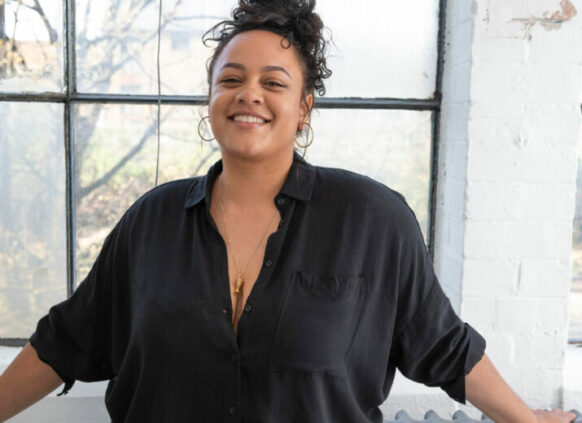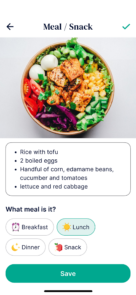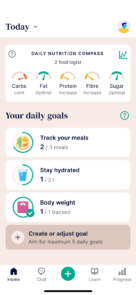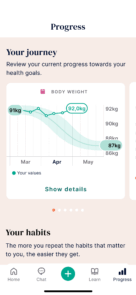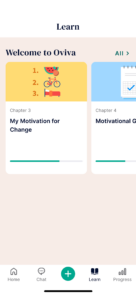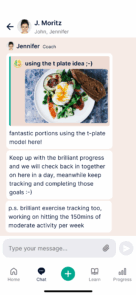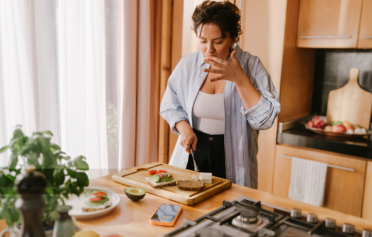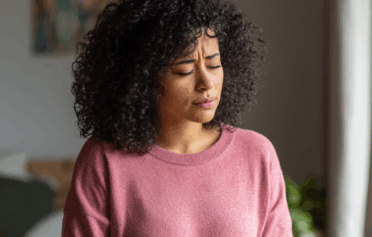
How to lose 30 pounds safely (from an expert)
Typically, 5-10% body weight loss is associated with health benefits like reduced blood pressure, better cholesterol levels and mental wellbeing. 30 lbs of weight loss represents roughly 10-15% of body weight for many people living with obesity.
It’s essential to achieve this weight loss target safely. If you have a BMI of 35 or more and at least one relevant weight-related comorbidity, speak to your GP about a referral to the Oviva weight management service. Our expert healthcare team will work with you to explore how to lose 30 lbs safely and sustainably.
Key Takeaways
- If you’re living with obesity, losing 30 lbs could help you to reduce health risks.
- It is essential to lose weight safely. Extreme lifestyle changes may be harmful to your well-being and difficult to maintain.
- The NHS recommends a weight loss target of 1 to 2 lbs per week as a guide.
- Oviva users could be prescribed weight loss medication via the NHS when appropriate.
How long does it realistically take to lose 30 pounds?
If you’re aiming for 30 lbs weight loss, one of the first questions you’re likely to ask is: how long does it realistically take to reach this goal? This question is understandable given the abundance of online articles making claims about losing 30 pounds rapidly.
The NHS recommends a weight loss target of 1 to 2 lbs per week. This is a realistic and safe amount of weight loss, suitable for the majority of people living with obesity. Based on this rate of weight loss, it’ll take between 15 and 30 weeks to achieve 30 lbs of weight loss.
For some people, faster weight loss plans could be valuable, especially if seeing quick results will likely help with motivation. However, very low-calorie diets and the use of weight loss medication should only be carried out under medical supervision to keep you safe.
At Oviva, we can help you lose weight sustainably and successfully.

How to lose 30 lbs
Explore various useful insights and tips that will help you lose 30 pounds safely.
1. Start with the right mindset
Your starting mindset is crucial, and it’s a great idea to begin by setting realistic and achievable weight loss targets that will guide you towards your 30 lb weight loss. For example, aim for weight loss of around 1 to 2 lbs per week and 4 to 8 lbs per month.
This pace of weight loss is usually achieved by adopting a daily calorie deficit of around 500 to 600 calories through a combination of dietary changes and increased physical activity.
Understanding the value of behavioural change in your weight loss journey is essential. To achieve 30 lbs of weight loss, you will need to adjust your eating habits and the amount of activity you do. Oviva can work with you to optimise behavioural change.
Understanding how much to eat to lose weight can also be beneficial.Maintaining motivation is a vital consideration. There are several ways to do this, including creating a list of reasons why you want to lose weight and logging your progress using a weight loss app so you’re continuously reminded of how far you’ve come.
2. Make the right changes to your diet
Making adjustments to your diet is central to any guide on how to lose 30 lbs, but you also need to make sure you’re making the right changes.
The primary focus should be on eating a healthy, nutrient-rich diet. Meal planning helps by allowing you to choose nutritious ingredients and ensure a balanced diet. This reduces impulse eating and makes it easier to avoid unhealthy options.
Cut out as many ultra-processed foods as possible and switch to natural or minimally processed foods. Ultra-processed foods often contain a high amount of unhealthy fats, sugar, and salt. They’re also often hyper-palatable, which can lead to overeating.
It’s a good idea to have healthy foods readily available to prevent the temptation to reach for unhealthy snacks. Some good examples of healthy snacks include apples, carrots, oranges, vegetable sticks with hummus, a boiled egg, or a handful of seeds or unsalted nuts.
At Oviva, we work with you to create a personalised diet plan that suits your needs, goals, preferences, and dietary requirements. For more information on what to eat to lose weight effectively, our healthy meal plan gives you 7 days of delicious recipes to help get you started.
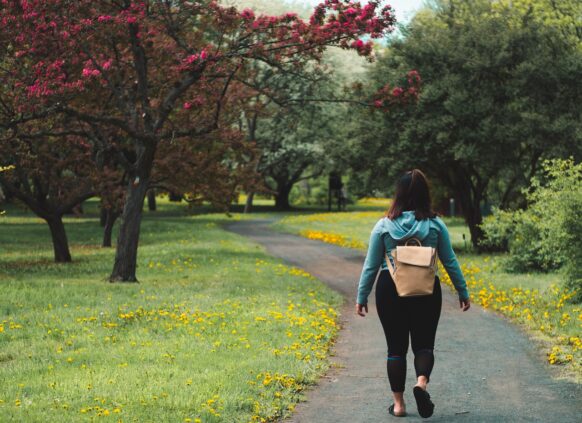
3. Incorporate exercise
Increasing the amount of exercise you get each week can also improve your chances of losing 30 lbs.
For best results, you should include cardio and strength training.
The NHS recommends 150 minutes of moderate-intensity exercise or 75 minutes of vigorous exercise weekly. Try to include strengthening exercises for the major muscle groups (arms, legs, chest, shoulders, abdomen, and back) at least twice weekly.
You may need to start slow and make gradual progress. If you find exercise difficult, consider increasing the time you spend standing and walking around.
See where you can make simple changes in your daily life, like using the stairs instead of lifts or escalators, taking a walk on your lunch break or spending extra time on household chores like gardening.
Ashlee’s +30 lb weight loss transformation with Oviva
Ashlee is a loving mother of two children and a biomedical scientist. She joined Oviva’s weight management programme after a visit to her GP.
“I was in a rut, and I knew I needed to change my lifestyle”, Ashlee explained.
With the support of healthcare professionals at Oviva, Ashlee initially embarked on a Total Diet Replacement (TDR) plan. After nine weeks of the programme, she had lost over 30 lbs.
“I was feeling amazing; so much more confident and motivated”, she said.
With the aid of Oviva’s digital tools and her health coach, the next phase of Ashlee’s weight loss journey involved moving back to solid foods. Before long, Ashlee was enjoying small amounts of chocolate as part of a broader healthy eating plan.
After nine months on the programme, Ashlee was reaping the rewards of her hard work.
Read more about Ashlee’s story.
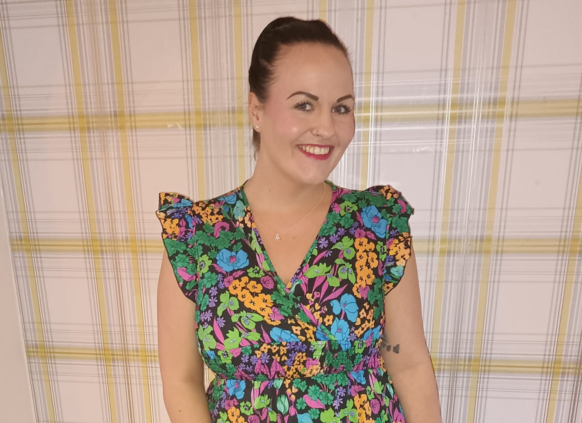
I can now run alongside my daughter riding her bike. I am finally enjoying going clothes shopping. I feel more motivated, productive and energised when it comes to working. I feel great. The whole experience has been life-changing.
How to know if weight loss medication is right for you
If you’re trying to lose 30 lbs, you may wish to consider whether you’re a suitable candidate for weight loss medication. This medication can help suppress your appetite so you can gradually lose weight.
If you’re eligible for referral to Oviva, you may also be eligible for prescription weight loss medication on the NHS, such as Wegovy or Saxenda. These medications can be extremely valuable if you’re living with obesity and have previously tried to lose weight through conventional means but have been unable to do so successfully.
To be approved for an NHS weight loss prescription, you must have a BMI over 35 and relevant comorbidities. For people from certain ethnic minority family backgrounds, a lower BMI threshold, as equivalent health risks are experienced at a lower BMI.
Unsure of your BMI? Use our free BMI calculator.
Overcoming common challenges
These sections provide advice on how to overcome common weight loss challenges, which can support your journey to losing 30 lbs.
Dealing with plateaus
One of the biggest challenges you may face when attempting to lose 30 pounds is plateaus in your weight loss results. While this can impact motivation, it’s vital to understand that these plateaus are normal and do not mean you’re doing something wrong.
Often, plateaus result from early weight loss being faster than usual. This typically occurs because your body uses the energy stored for fuel, leading to losing water weight.
Weight loss plateaus usually resolve in time, so try to be patient with your journey and stick to the healthy lifestyle adjustments you’ve made.
You can take several steps to help your body move past a plateau. For instance, you could avoid alcohol, eat more fibre-rich foods or increase activity levels.
Learn more about overcoming weight loss plateaus.

Balancing life and weight loss
Another common challenge involves striking the right balance between your weight loss efforts and living your life.
For example, if you often feel pressed for time and rely on takeaways or fast food, trying to improve your diet by cooking complicated meals may not be sustainable. Instead, look for quick recipes full of whole foods, and meals you can batch cook. Ensure you have healthy snacks in the house too.
It’s also important to enjoy an active social life. You can still enjoy meals or nights out – try to order healthy options as much as possible.
What does losing 30 pounds do to your body?
It’s worth stressing that health benefits associated with weight loss are usually measured according to the percentage of total body weight lost. The precise effects of losing 30 pounds depend on factors like your starting weight and existing health conditions.
Nevertheless, losing 30 pounds will likely reduce certain health risks. You may also notice a boost in confidence, better-fitting clothes, and improvements to your fitness and energy levels, which can help motivate you to continue your journey.
Is 30 lbs of weight loss noticeable?
For most people, losing 30 pounds will make a noticeable difference in their frame, and they will start to feel some benefits. These could include decreased shortness of breath or noticeable mobility or fitness improvements.
The extent to which 30 lbs of weight loss is noticeable will depend on your starting weight.
One study (Daniel E. Re et al.) found that people notice changes in their faces if they lose around 1.33 points of their BMI score. For people of average height, this amounts to a loss of around 8 or 9 lbs. Losing 30 lbs should be noticeable to most people.
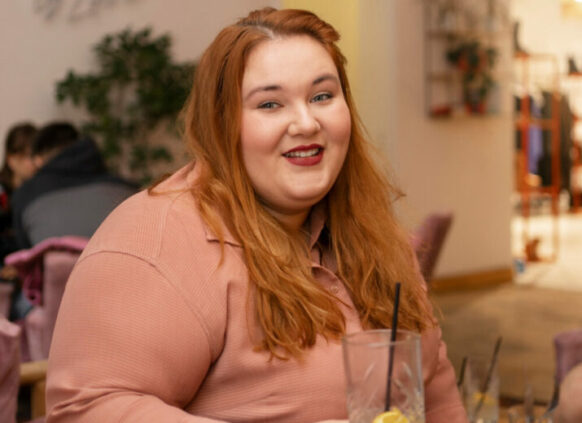
Support on your weight loss journey
Support can really make a difference when embarking on a 30 lb weight loss journey. This is especially true regarding overcoming plateaus, finding the right balance between weight loss and everyday life, and making weight loss sustainable in the long term.
In addition to support from friends and family, support from healthcare professionals can be invaluable for optimising outcomes.
With Oviva, you’ll receive personalised care tailored to your needs and circumstances. Our team of healthcare professionals includes dietitians, psychologists, nurses and doctors. We’ll support you as you implement valuable lifestyle changes.
You’ll also gain access to the Oviva app, which allows you to communicate with your personal coach, track your meals and activity, and access valuable weight loss resources.
